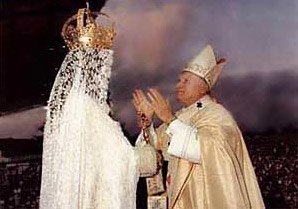True, but upon reading the aforementioned chapter...it appears that Jesus's "Brethren" and His mother were not among the "relatives" who claimed Him to be insane. Also, we see nothing of any avarice or malice in Jesus's mother's actions here. All we are told is that she is outside and sent someone inside to tell Him they were looking for Him.
There is no Scriptural evidence that these "relatives" of Jesus are the same people as His "brothers", because specifically two separate words are used to describe each party involved.
I leave it at that.
I am not surprised you don't look deeper. If you did you would discover how wrong you were.
For those who find it difficult to understand context I will explain simply the situation with regard to Mark 3.20-34 which, as can be seen, is one integral passage:
3.20 And the crowd comes together again, so that they could not so much as eat bread.
21 And when those who were close to him heard it, they went out to lay hold on him, for they said, He is beside himself.
22 And the scribes who came down from Jerusalem said, 'He has Beelzebub', and, 'By the prince of the demons he casts out the demons.
23-26 And he called them to him, and said to them in parables, 'How can Satan cast out Satan? And if a kingdom be divided against itself, that kingdom cannot stand. And if a house be divided against itself, that house will not be able to stand. And if Satan has risen up against himself, and is divided, he cannot stand, but has an end.
27 But no one can enter into the house of the strong man, and spoil his goods, except he first bind the strong man; and then he will spoil his house.
28-30 Truly I say to you, All their sins will be forgiven to the sons of men, and their blasphemies with which they will blaspheme, but whoever will blaspheme against the Holy Spirit will never have forgiveness, but is guilty of an eternal sin' (because they said, He has an unclean spirit).
31 And there come his mother and his brothers, and, standing outside they sent to him, calling him.
32 And a great crowd was sitting about him, and they say to him, Look, your mother and your brothers who are outside are looking for you.'
33 And he answers them, and says, 'Who is my mother and my brothers?'
34 And looking round on those who sat round about him, he says, 'Behold, my mother and my brothers! For whoever will do the will of God, the same is my brother, and sister, and mother.'
The aim of the passage is to show the reaction of two kinds of people to the fact that great crowds have come to hear Him, firstly His own family, and then the Scribes from Jerusalem..
A The crowds gather to hear Him (seeking to know the will of God) (3.20)
B Those who are close to Him go out to lay hold of Him, thinking that he is mad (3.21).
C The Scribes from Jerusalem come down and accuse Him of being in league with Satan (3.22).
C' Jesus rebuffs the Jerusalem scribes in no uncertain way (3.23-30).
B' Jesus is informed that His mother and brothers (His close relatives) want to see Him, and rebuffs His mother and His brothers in no uncertain way (3.31-33).
A' Jesus acknowledges those who do the will of God as His mother, sisters and brothers (3.34).
Note the chiastic formation popular with Jewish writers. A links with A', B links with B', C links with C'. The whole passage is a unity.
It is clear from this that Mark wishes us to connect those who are close to Him in B with His mother and brothers in B'. Indeed, why else should He rebuff them and replace them with those who are listening to His words?
It is quite clear that far from 'honouring' Mary, He puts her squarely in her place as NOT being one of those who are seeking the Father's will through Him. Anyone who refuses to see this is simply closing his eyes to the truth (a favourite pastime of Roman Catholics in trying to defend the indefensible).



